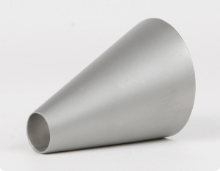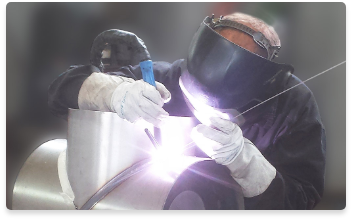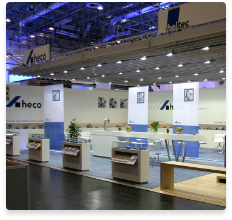


- Butt welding fittings
- bends
- T- X- Y- pieces
- T- and Y-bends
- reducers
- caps and heads
- collars
- branch saddles
- orbital fittings
- ANSI / ASME
- Industrial valves
- ball valves
- actuators
- drain cocks
- gate valves
- globe valves
- non-return valves
- Y-strainers
- control technology
- Flanges
- welding neck flanges
- threaded flanges
- blind flanges
- plate flanges
- loose plate flanges
- collars
- flange-fittings
- ANSI/ ASME
- other
- Systems
- TEEKAY
- Victaulic
- press fittings
- quick couplings
- clamp connections
- cutting rings
- DIN 11864/ DIN 11853
- railing construction
- Beverage fittings
- unions
- fittings
- pipe clamps
- Tri-Clamp
- valves & cocks
- flange connections
- inspection glasses
- filter & strainers
- spray balls

gasketANSI.FD.G



gasket novaphit® SSTC with expanded metal insert ASME B 16.21 type IBC
Expanded metal graphite gasket
Graphite gasket material with an insert made of acid-resistant stainless steel (1.4404, AISI 316 L)
for the highest pressure and temperature requirements. Excellent media resistance and
high safety margins even under alternating loads characterize its quality.
Properties of novaphit® gaskets made of expanded graphite
• Suitable for temperatures from -200 °C to 550 °C
• Insensitive to temperature variations
• Highest adaptability to unevenness of the flange
• High error tolerance in terms of unfavorable sealing surface properties
• Almost no hot setting
• Universal chemical resistance
• Best possible seal in the flange
• Can be used at inner pressures up to 250 bar
ASME B 16.21 type IBC
extended product description
other gaskets ASME/ ANSI graphite novaphit® SSTC
gasketANSI.FD.G

Expanded metal graphite gasket
Graphite gasket material with an insert made of acid-resistant stainless steel (1.4404, AISI 316 L)
for the highest pressure and temperature requirements. Excellent media resistance and
high safety margins even under alternating loads characterize its quality.
Properties of novaphit® gaskets made of expanded graphite
• Suitable for temperatures from -200 °C to 550 °C
• Insensitive to temperature variations
• Highest adaptability to unevenness of the flange
• High error tolerance in terms of unfavorable sealing surface properties
• Almost no hot setting
• Universal chemical resistance
• Best possible seal in the flange
• Can be used at inner pressures up to 250 bar
This view is not optimized for mobile devices.
You can change back to desktop view.
This view is not optimized for mobile devices.
You can change back to desktop view.


